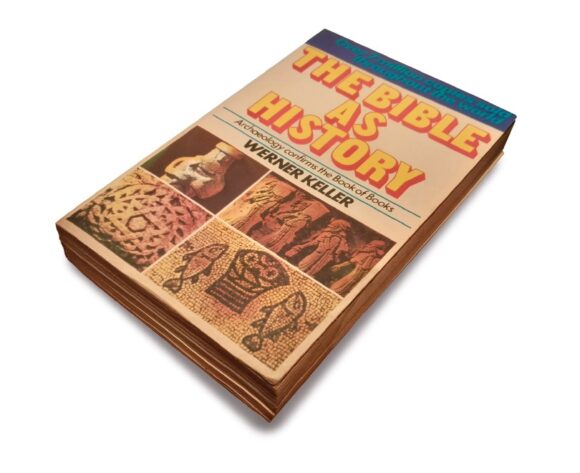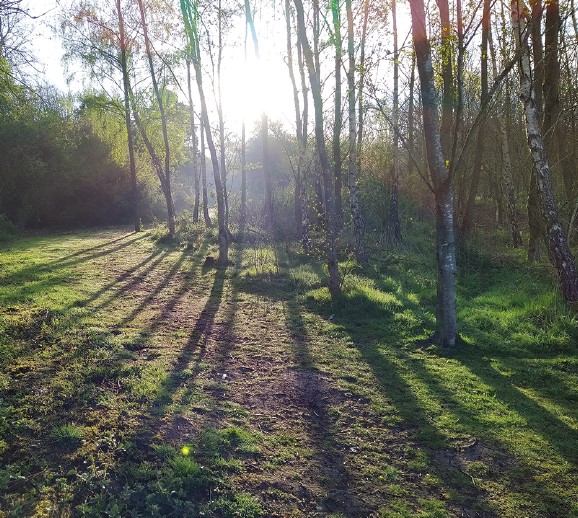IT IS DIFFICULT to appreciate that it was just over 63 years ago, when I sat in a bath of warm water in an old upper room and confessed my belief in the Gospel of the Kingdom of God and the Lord Jesus Christ.
I was brought up in Middlesbrough in northern England in the 1950s. My mother sent me to St Paul’s Church School: she thought that was good for me.
At school we were made to attend the Church of England services each morning. It has to be said that most of us were not interested in religion.
Each morning we had Bible teaching, then in the afternoon science, which included teaching on the evolution of life (which was more interesting for most of us). The Bible held no real appeal for me.
But I am sure that somewhere inside, I wanted to find out about God. That is why once, after a special church parade with the Air Cadets, I stayed behind at the church. But nobody showed any interest in me, in particular the young people, so I left. (In my subsequent years as a church member I have not forgotten that lesson.)
I did pray a little as I wondered what life was about—something like “If you are there who are you?”
In 1957 my family moved to Luton. My first job was enjoyable. However one of my colleagues was a churchgoer and he castigated me as a heathen because I did not attend church. But he never invited me to go with him. Another lesson learnt.
I was called up for National Service, and hoped to join the Royal Air Force to follow my passion for aircraft. But because of a foot injury sustained on the football field I was rejected.
A New Challenge
I obtained a job as an engineer fitter working on tabulator machines. There were four of us working together: I was an agnostic (I neither disbelieved nor believed in God); there was an atheist, and two churchgoers, one of whom was Vernon, a Christadelphian who had recently been transferred to the factory. (Looking back, I believe God was at work here.) The two churchgoers were very vocal about their faiths, and at first I wasn’t happy about it. Between us we had many arguments about the origin of life. The churchmen gave me booklets on the subject, and other Bible subjects. Although I felt that I was being ‘Bible bashed’ I had to admit I was being persuaded. Prayer was now in my life—something like “What am I to do?”
One day I shocked Vernon by asking him the subject of the public talk at the Christadelphian meeting that Sunday.
He actually lived in Watford and belonged to his local meeting, but he said he’d take me along to the meeting in Luton. So we met at the Luton hall—I remember it didn’t look like an appealing place from the outside. The subject of that Sunday’s talk was “The Judgement Seat of Christ”. I did not understand much, but I was struck by one phrase: ‘They shall beat their swords into ploughshares, and their spears into pruning-hooks.’ It’s from the beginning of Isaiah 2, and those verses stayed with me.
Coming Round
The verbal battles continued at work. Vernon gave me a Bible—a pronouncing edition, which helped me get to grips with the difficult names. My resistance to religion was being eroded.
Six months after the first visit I went again to the Luton Christadelphians. The subject was “God Rules in the Kingdoms of Men”. On the wall was a huge painting of Nebuchadnezzar’s dream from Daniel 2. The dream was a prophecy about world history which was future to Nebuchadnezzar, but which we can look back on and see how it came true. I enjoyed this talk.
The Bible started to open up, and I realised there was much I needed to learn.
Now I was into heavy stuff! I bought a book entitled “The Wonders of Prophecy”,1 which explained how the Bible accurately foretold historical events. I began attending the Luton evening meetings fairly regularly. I was invited to people’s homes to talk about the Bible, and I finally acquiesced. I remember Bert, one of the kindest men I have ever met. During our chats I showed my interest in archaeology, and he loaned me “The Bible as History”,2 a fascinating book that explains how many unearthed artefacts and people and cities are referred to in the Bible. When I read the phrase, “Nothing has been found that has proved the Bible to be wrong”, I was off to the British Museum to see for myself. I was impressed.
History, archaeology and prophecy started to fit together. Now I believed the stories of the Old Testament. I read the Bible intently. The Kingdom of God was shining out from its pages, wonderful visions of the future which I had never heard of before. And so many verses referring to the return of Jesus Christ and the wonders of his coming Kingdom. I felt I was emerging from ignorance to a whole new world of Bible knowledge.
My Conversion
When Bert said I was ready for baptism I had a great struggle to make that vital step. Then I was rushed into hospital, and I was reminded of my mortality—had I left it too late? During my convalescence I read “God’s Way”,3 which answered many of my questions. I felt converted, and asked for baptism again.
I now came to fully understand that this man Jesus Christ sacrificed his life for me and for all who will believe. So on the 10th January 1959, after a great struggle within, I was baptised in obedience to the Lord’s command (Acts 2:38) by full immersion in water.
On the following Sunday morning I stood in front of my new brothers and sisters and received ‘the right hand of fellowship’—a way of welcoming me into my new family. That day for the first time I shared the bread and wine in obedience to my Lord’s command (1 Corinthians 11:23–26), in symbolism of his sacrifice.
After two false starts, Jesus accepted me as I am. My life was now completely changed. I had a new goal, a purpose, a secure future, and a huge family. It has not always been easy. But I have the confidence to share the wonderful Gospel message with any who will listen.
I thank God every day for His calling, His mercy, His grace and the love of the Lord Jesus my saviour and friend, and pray for his return to fulfil those precious promises in the Bible. This verse encourages me to wait patiently for his return, and continue to give my whole life to him:
‘Watch therefore, for you know neither the day nor the hour in which the Son of Man is coming’ (Matthew 25:13).4
Tom Ingham
1 John Urquhart; 2 Werner Keller; 3 John Carter; 4 New King James version




